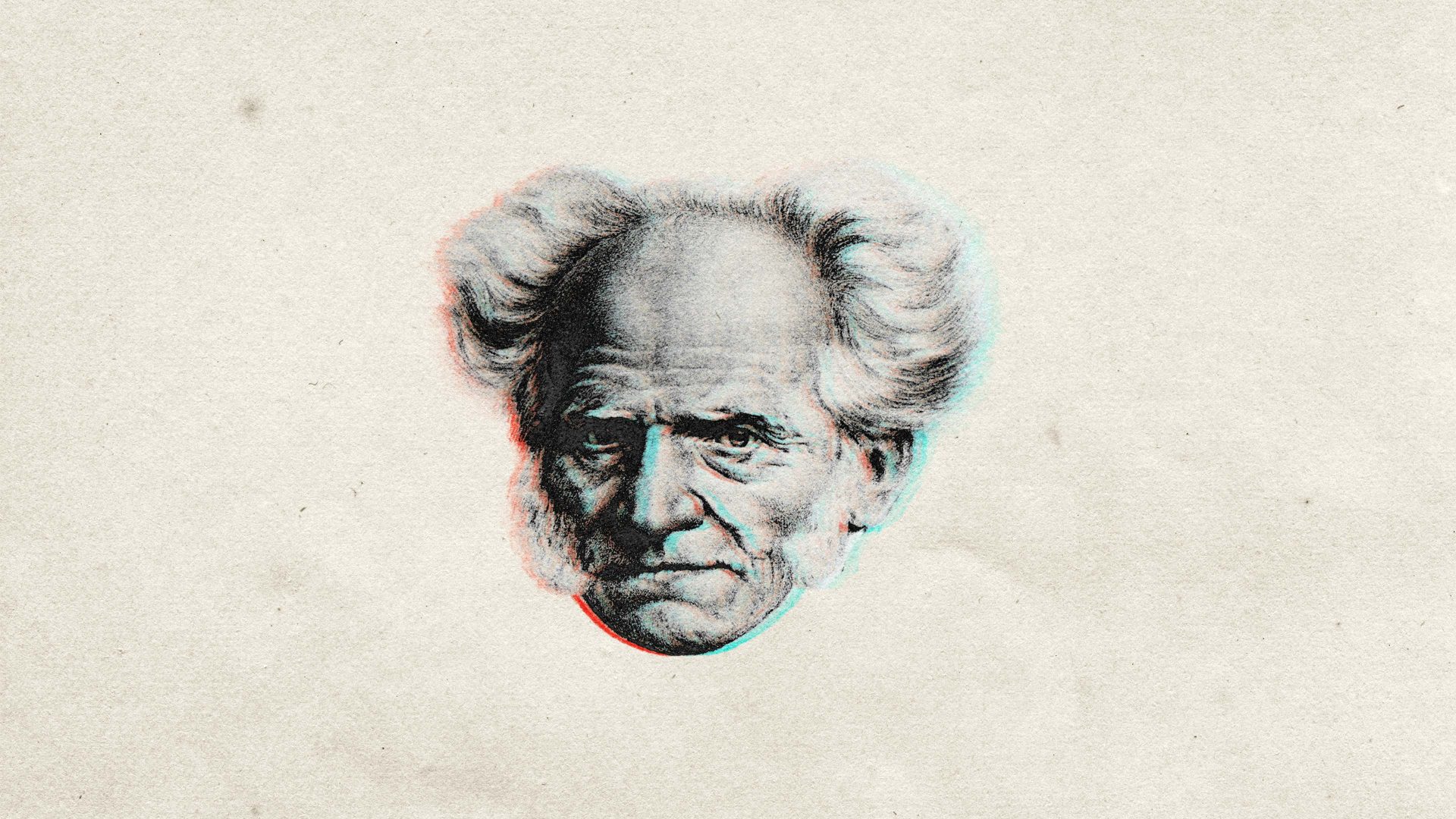It was Arthur Schopenhauer’s birthday on February 22. Born in Danzig (now Gdańsk) in 1788, he was in some ways the most European of philosophers.
His parents chose the name Arthur because it had the same spelling in German, French and English. They wanted him to be cosmopolitan, and had tried to arrange for him to be born in England to have the rights of a British citizen, but his mother became ill during pregnancy and that plan fell through. He spent his youth in Hamburg, and as a young man travelled extensively in Belgium, France, Switzerland, Germany and England (where he attended a boarding school in Wimbledon for three months). He quickly became fluent in English and French as well as German.
As a philosopher, he’s best known for his pessimism, and the way he combined eastern philosophy with western metaphysics in his major work The World as Will and Representation; that and the fact that once, in a rage, he pushed an old neighbour down the stairs because she was being noisy outside his apartment – he had to pay her compensation until she died.
Schopenhauer’s philosophy influenced a remarkable number of musicians, artists and writers, including Richard Wagner and Thomas Mann. Leo Tolstoy described him as “the most brilliant of men” and hung his portrait in his study. He was Ivan Turgenev’s favourite philosopher. He influenced Zola, Proust, and Joseph Conrad, too.
Perhaps his most important influence in philosophy was on Friedrich Nietzsche, who later turned on him, mocking him for being a pessimist who played the flute (Schopenhauer did literally play the flute). But I want to focus here on Schopenhauer’s writing style. His clarity was what allowed him to have such a profound influence. He always wrote to be understood, something not all philosophers do. He risked being comprehensible, and the risk paid off.
His familiarity with the French and English literary traditions helped him to escape the forbidding style of Idealist philosophers writing in German, typified by Immanuel Kant and, later, by Georg Wilhelm Friedrich Hegel. Schopenhauer admired Kant’s thought, but utterly despised Hegel’s: he dismissed him – somewhat unfairly – as a charlatan and accused him of wilful obscurity. Once the public had recognised that Kant’s work was genuinely deep, although it had initially seemed incomprehensible, they began to associate incomprehensibility with profundity in general. That confusion of obscurity with depth still goes on – you need only to look at the popularity of some impenetrable philosophy books by Slavoj Žižek to see that.
Schopenhauer, in contrast, wrote lucid prose because he wanted to be read and understood. “Truth,” he declared, “is fairest naked”: the simpler its expression the more profound its influence. Humans, he believed, can only think clearly when dealing with one thought at a time.
He attacked the German tradition (as he saw it) of saying six things at once, in long, jargon-laden sentences as an abomination. Write clearly, avoid obfuscation, say one thing at a time – that was all very good advice and hardly radical. Sadly many subsequent philosophers, perhaps most notably Martin Heidegger, didn’t take it to heart.
I’m sympathetic with Jonathan Glover’s assessment of Heidegger. In his book Humanity: A Moral History of the Twentieth Century, he suggested that Heidegger’s moral failing went further than his infamous enthusiastic support for the Nazis.
Glover argued very plausibly that Heidegger undermined philosophy’s role in “developing a climate of critical thought”. That’s true whenever philosophers adopt an oracular and obscure way of addressing the world. There is very little possibility of engaging with their ideas when it is almost impossible to pin down what it is they are saying. Glover slammed Heidegger for embodying the idea that “philosophy is an impenetrable fog, in which ideas not clearly understood have to be taken on trust”. Too often philosophers have written and continue to write in ways that encourage their readers to believe that if the language is obscure enough it must mean something important, and that they should be deferential, not critical.
In most areas of philosophy, even the most intractable ones, it is possible to write clearly and precisely. That way the critical conversation about some of the most profound questions we can ask ourselves can continue.
Obscurantists shouldn’t be treated with deference. We should call them out rather than assume they are deep thinkers. Sometimes fog is just fog.
It’s high time Schopenhauer, not Hegel or Heidegger, became the poster-person of continental philosophy.



